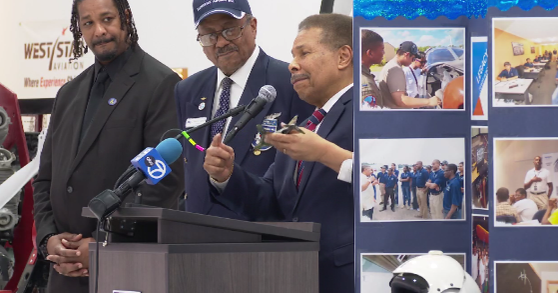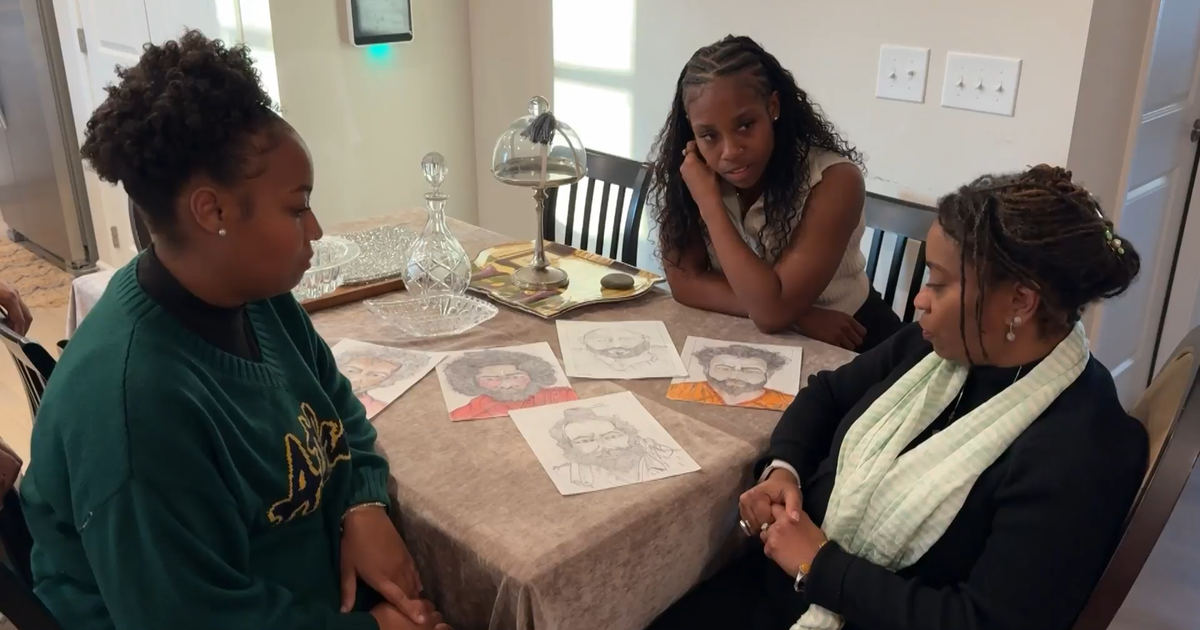Transcript: Dr. Michael Drake on "Face the Nation," July 19, 2020
The following is a transcript of an interview with Dr. Michael Drake, president-elect of the University of California system, that aired Sunday, July 19, 2020, on "Face the Nation."
MARGARET BRENNAN: We want to go now to the president elect of the University of California school system, that's Dr. Michael Drake. He joins us from San Francisco. Good morning to you, Doctor.
UNIVERSITY OF CALIFORNIA BOARD OF REGENTS PRESIDENT DOCTOR MICHAEL DRAKE: Good morning, MARGARET. Nice to be here.
MARGARET BRENNAN: Glad to have you. I know you're in a transition having been at Ohio State previously. And I read that while you were there as an administrator, you also taught a course on civil rights. And given the passing of John Lewis, I'm curious what you as a professor taught your students about his legacy.
DR. DRAKE: Well, thank you. Yes, I taught the course that began when I was the chancellor at the University of California, Irvine, and then move that course with me to the Ohio State University. And, of course, that- that I taught with my co-teacher was the dean of the law school in both cases. And the course was on civil rights, The Supreme Court, and the music of the civil rights era. And we went through from 1954 to 1968, the milestones in the civil rights movement. And one of the places that we focused was the Freedom Riders in the early 1960s. Very interesting to our students because those people were very young, like our students were, and John Lewis was a leader of that movement so we focused specifically on him. I had the opportunity to meet him. He was a courageous and inspiring figure. General Powell was on earlier today and he mentioned his- Congressman Lewis's humanity, his generosity, his kindness of spirit and how wonderful it was to have a person who was so kind and thoughtful as an individual and at the same time, so courageous and committed to making this country a better place. So this is a great loss. He- he did a great deal to help make this country better.
MARGARET BRENNAN: Well, I'll ask you put your administrator hat back on.
DR. DRAKE: Yeah.
MARGARET BRENNAN: Now that you're at UC, they have taken some high profile steps to attempt to increase diversity within the school system. One of the more controversial ones was this decision to do away with the requirement of SAT or ACT tests in the future, despite some arguments within the university that that doing so would result in lower grade averages or lower graduation rates. And I wonder how you think about addressing these concerns that- that eliminating the standard somehow lowers them?
DR. DRAKE: Well, we are in no way attempting to lower standards at all. We have a variety of things that we consider in admissions. I was admissions- in charge of admissions for the UCSF Medical School for many years and in the past. And we used a variety of things to determine the qualifications for students who are going to be admitted to our university. We're very proud that we have so many students interested in attending and we have to judge between them. And what we found is that standardized tests provide marginal information. They- they can help, but they don't tell the whole picture. And particularly in this time of COVID, when the- the opportunity to study and prepare for a test is quite uneven between those students who might be applying for us, we wanted to remove any potential barriers for students who might not have access to all the support that they need during this time to prepare for taking the test and therefore artificially score lower than they might. So the- the plan is to retreat from those standardized tests now and to think about other ways that we might gather that information as we look forward in the future. It's an ongoing discussion for us.
MARGARET BRENNAN: As we mentioned, you're also a medical doctor.
DR. DRAKE: Yeah.
MARGARET BRENNAN: And when you look at California and the case count seeming to increase there, would it be helpful to you as an administrator to have a national benchmark setting an infection rate that would help determine whether it's safe for students to go back into the classroom or not? Or is it more important to you to have the ability to decide that at the state level or on your own?
DR. DRAKE: Well, there are several things. It's important at the local level, but we are- although we're a state university, we're an international university. So we have students and- and faculty coming from all over the world, particularly students coming from all over the country and all over the world. So the- what happens in the world, happens at the University of California and- and vice versa. You know, we have nearly 300,000 students. Most important thing for all of us, I think, in this phase is to wear masks. I think there's nothing more- that's the most important thing we could do today to try to get back to something that looks like normal as quickly as possible. Our scientists and scientists around the world are working on developing better treatments, working on developing a vaccine. But those things are months or many months away, at least. Today, to help stem the spread of this virus the most important thing for us to do is to wear masks, to protect others and protect ourselves. And we see that when mask wearing is done by a large fraction of the population, the infection rate is held down. And--
MARGARET BRENNAN: Do you need--
DR. DRAKE: --and when that's not done, the infection rate goes up. And I think that you get to choose. And I think we need to choose to make ourselves safe and to do all the things. Wear masks, socially physically distant, use handwashing. But those are the most important things for us to do in- in the short run, most important things to do today to help us have the future get back to normal as soon as it can.
MARGARET BRENNAN: Thank you, Doctor, for your insight and your advice today. We'll be right back.



